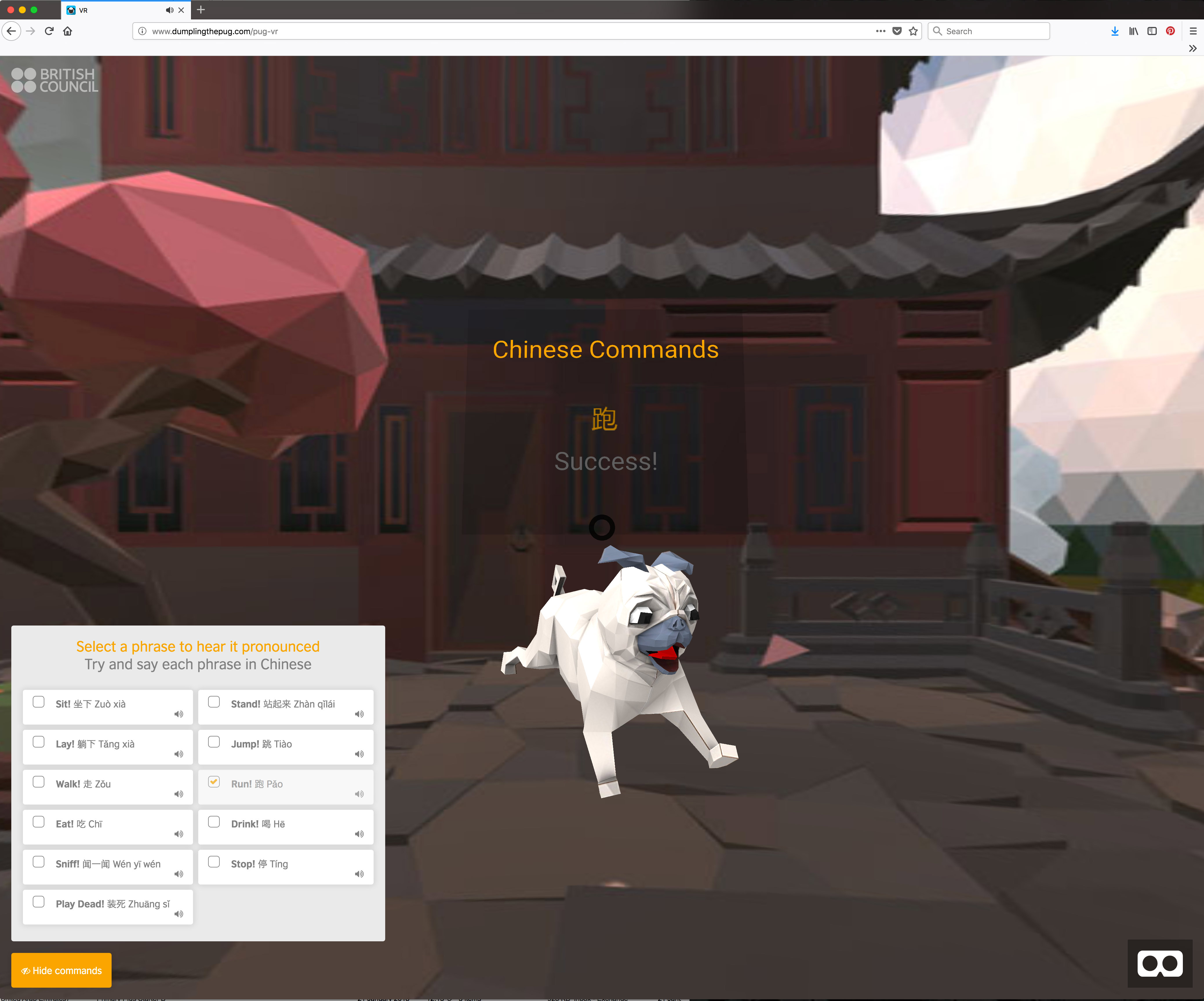
A new virtual reality dog has been created to encourage youngsters to try learning Mandarin.
The pup, launched ahead of the Chinese New Year, which heralds the start of the Year of the Dog, responds to voice commands given via an interactive website.
Children have to learn words such as “eat”, “walk” and “sit” to give to the dog, named Dumpling.
The British Council, which has developed the programme, said the dog is part of an education pack designed to introduce primary school children to China’s language and culture.
Teachers, here are some resources to help make your classes more aware of Chinese culture as we get ready to celebrate the #ChineseNewYear: https://t.co/7VYdS9nUQV #YearOfTheDog pic.twitter.com/idmdfTWboh
— British Council (@BritishCouncil) February 15, 2018
Vicky Gough, schools adviser at the British Council, said: “Mandarin Chinese is a fascinating and valuable language than can open our children’s eyes up to the world. More than that, it truly matters to the UK’s future prosperity post-Brexit.
“We hope that the idea of being helped in their learning by a playful pug will see many more young people giving Mandarin a go this Chinese New Year!”
Mandarin Chinese is the most widely spoken language in the world.

A recent British Council report identified Spanish as the top language the UK will need after Brexit, followed by Mandarin Chinese, French, Arabic and German – based on a range of economic, geopolitical, cultural and educational factors.
The report called for “a bold new policy” to improve foreign language learning, and suggested that languages be given the same priority as maths and science in schools
Official figures showed a continued drop-off in French and German A-level entries last summer, while the numbers taking Spanish rose slightly.
There were increases in entries for a number of other foreign languages, including Arabic, Chinese and Italian.


Comments: Our rules
We want our comments to be a lively and valuable part of our community - a place where readers can debate and engage with the most important local issues. The ability to comment on our stories is a privilege, not a right, however, and that privilege may be withdrawn if it is abused or misused.
Please report any comments that break our rules.
Read the rules here